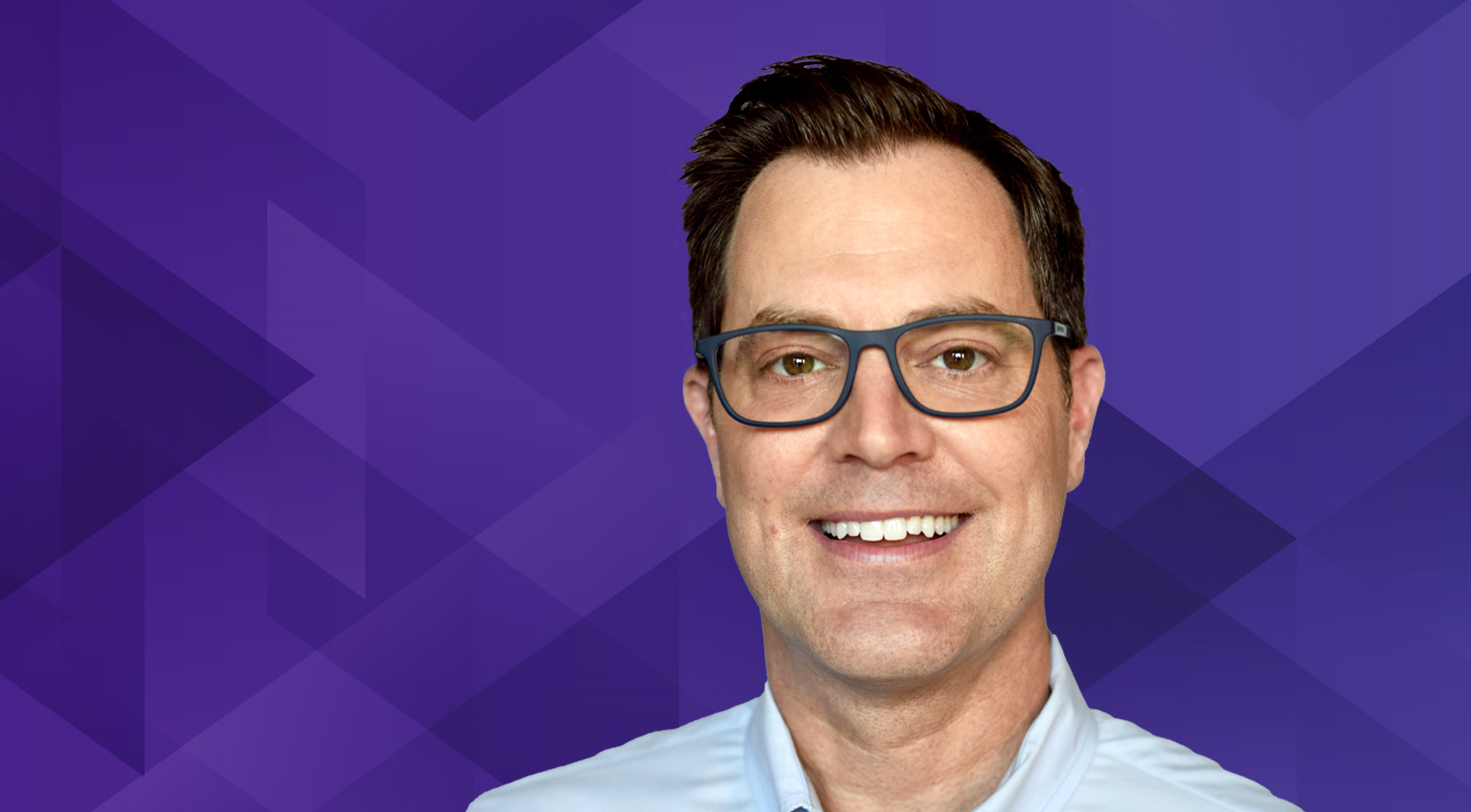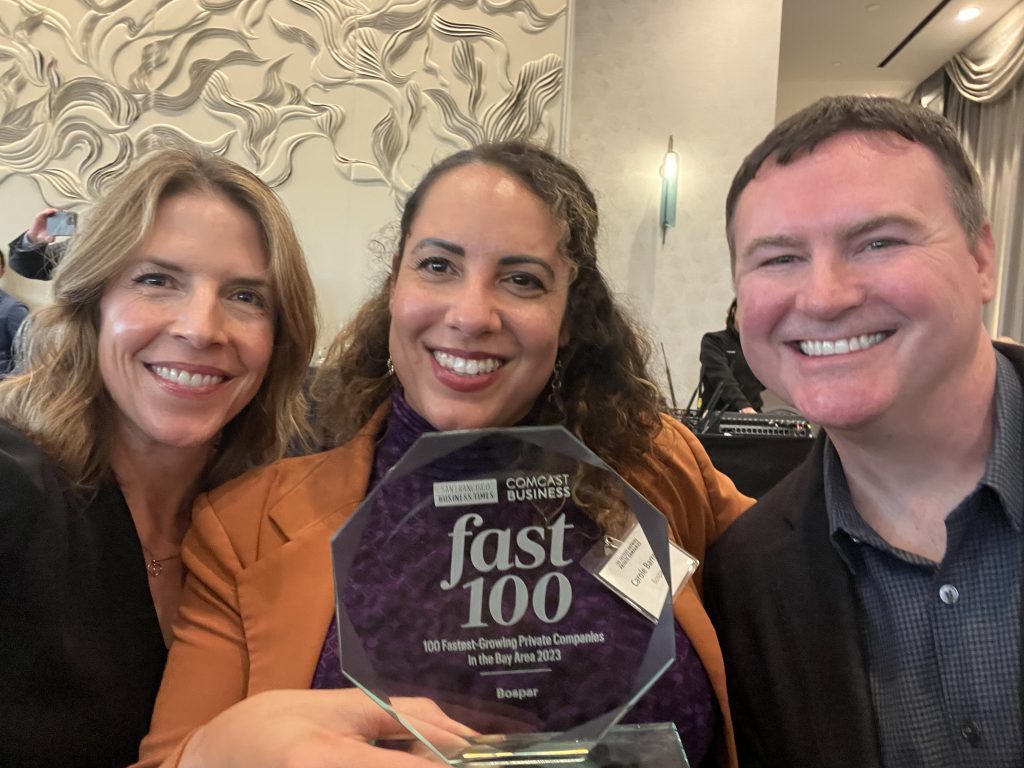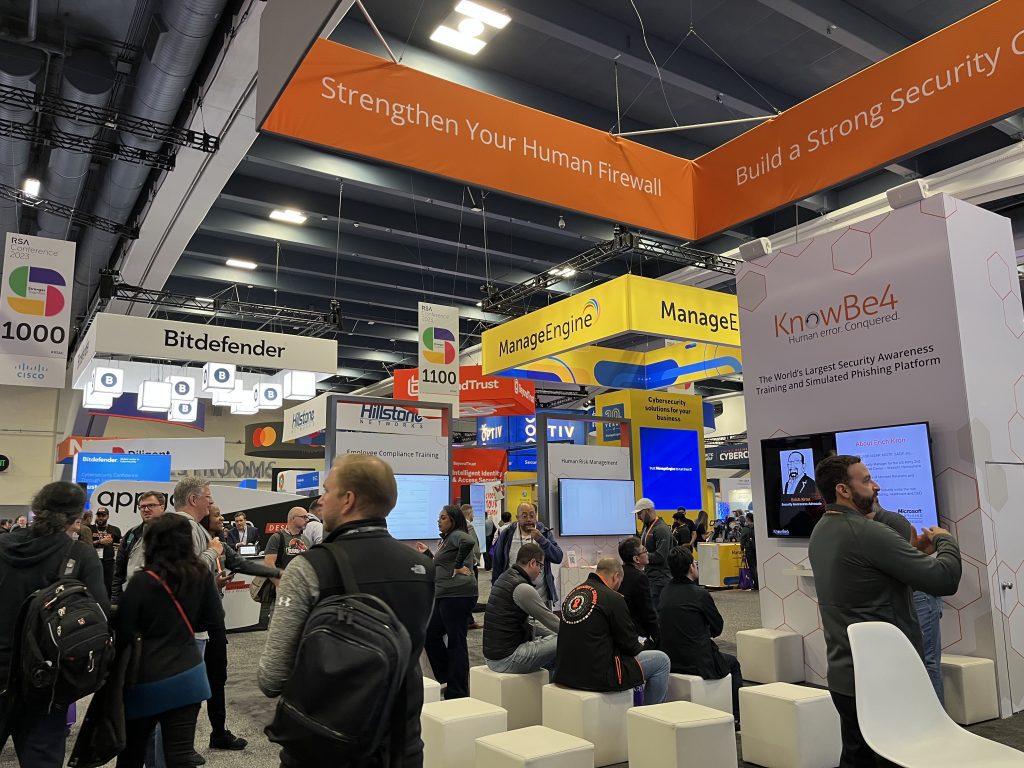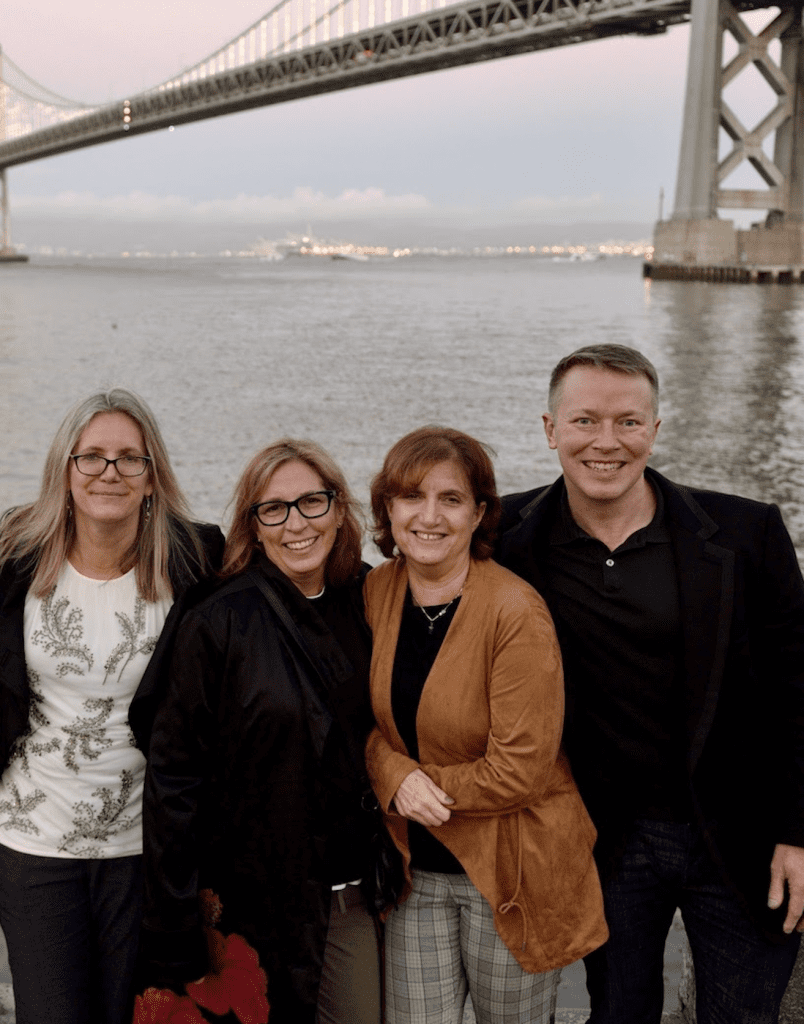Why hire Bospar?
In this series, senior Bospartans share their areas of expertise. This month, SVP Brett Larson shares what inspires him and his team to do their best work.
What makes you a uniquely valuable asset to Bospar and its clients?
I’ve spent over 20 years in broadcasting, starting as a music DJ. My first job was overnights in Reno Nevada for 6 months where I managed to grab the highest ratings the station ever had, a 26 share! So, for every radio that was turned on, one out of four were listening to me, and I think the reason was simple: I was having fun. From there I would go to San Francisco and then I decided to move over to journalism. I worked for Macworld Magazine for several years before going to TechTV, then CBS, Fox Television, CNN, and finally Fox.
I bring that broad understanding of media to the table for our clients.
I also bring that experience to our agency, so I know when there’s a breaking news event, it’s not a good time to pitch reporters. That was always something that bothered me: I’m dealing with another mass shooting and getting a pitch for electric door locks or some new app. Not a good time.
Prior to joining Fox News in 2015, I was talking with three different PR agencies as I was considering making the jump then.
Fox made an offer I couldn’t refuse to bring me in to launch a new 24-hour news station on SiriusXM and I would be the senior anchor. While there, I ensured we kept our stories honest and didn’t veer into the opinion side of Fox.
How do you get a client to tell a good coherent story?
Keep asking questions and try to find a good angle. Some people are too close to the subject and feel like you are too, so they don’t understand how it sounds to the person listening. Our AI clients are a great example: The media is going nuts over AI and what it will do, whereas our AI clients are calmly explaining how it’s beneficial, how it works, and why it’s important—and that it’s been around for years. It’s not scary, like the media wants to make it, it’s another tool to help us be more productive.
What would make you as a journalist want to interview a person again after speaking with them for the first time?
Have something interesting to say. Back it up with some data and maybe an anecdote about how this new idea is changing small business, helping families or improving healthcare. Make it personal, make it relatable, give it feeling so it also gets an emotional reaction. People remember how you made them feel, not what you told them. Tell me about a different life experience you’ve had and try to relate that to the world.
How did working in broadcast impact you as a PR exec?
Well: everyone wants to do TV. We’d get new interns in radio, and they want to be on TV.I remember one asking if they could have their hair and makeup done. But radio teaches you how to be quick and self-sufficient. It’s just you, a microphone and some kind of audio playback. If something breaks, you figure out fast how to keep the content coming. That skill works for every medium, especially PR where things can move quickly, and you must react in real time.
There were many times when I’d be on TV and the prompter went down. Suddenly, there’s no script. And it’s like who cares? I’m supposed to be the the anchor, and I’m supposed to know what’s going on. That’s my job, so I improvised. I can’t just say, I’m watching the roof of Notre Dame on fire, it’s collapsing, and there are fire people around, because they’re expecting me to tell them a story about it, not just narrate what’s on the video. That skill has carried over pretty well, because with clients you sometimes just need to adapt.
Does media training help clients tell their stories more effectively?
Media training is one of my favorite things to do because as I tell clients, it’s supposed to be fun unless you’re in front of a crime scene talking to the media. At the end of the day, 90% of what we’re doing is entertainment. The point I make to people is that you need to be conversational. We know you’re smartest person in the room because the journalist wants to interview you. Tell them something they don’t know and be confident in what you’re saying.
Sometimes executives want to memorize statements, and I must correct them, because as the expert you’re supposed to know what you’re talking about, but more importantly, you’re supposed to sound human. For example, I was talking to a CTO about ChatGPT recently. He said it was just fancy copy and paste. It’s always fun to find those little gems. One of the hardest things is teaching people to get to the point quickly and then explain it, versus waiting until the very end to make your point. It’s especially important with broadcast.
What does the future of media look like to you?
It’s going to be a slow-moving change, but I think ultimately it will all be owned by 3 or 4 companies. I’ve enjoyed the democratization of content: you can go on YouTube, Instagram, TikTok, Facebook, Twitter, and Snapchat. But for the most part, you’re not getting the money from the advertising, you’re just supplying content.
Subscriber fees are keeping the cable TV model, and the many channels we have, alive. Whether you watch Fox, or CNN or MSNBC or AMC—they all get a piece of your bill. But that model isn’t sustainable as more people cut cable and go for streaming platforms.
But interestingly, the money you pay for your Internet connection doesn’t go to any of the sites you visit.
Yesterday or the day before, there was a story about subscriber fees and how whether you watch Fox or not, you’re paying $2 a month to Fox and they make billions of dollars on subscriber fees. CNN was the same. They made more money from subscriber fees than ad revenue. But people are canceling their cable, so those subscriber fees are starting to go away. They’re not as lucrative as they used to be. So, I think we’re in for a big overhaul and the change will be slow.
That’s where I’d like things to go, but that’s not where it’s going to go. There will still be four companies that own everything and they’re just going to have tentacles into every little piece. At some point some someone’s going to buy Facebook, like the AOL Time Warner acquisition. If you’re a content creator, figure out a plan B, because right now the movement is toward the platform, and not necessarily the content on the platform.
With Tik Tok, Snapchat, Instagram, Facebook, Twitter, and YouTube, in all these places where there’s advertising, you as a content creator don’t get any money from that and there shouldn’t be this, well, once you get 1000 views, then we’ll start giving you money. There’s a lot of money in media, but it’s not going to the people who are creating all the content that we’re consuming.



